Last Updated on March 18, 2021 by Dr Sharon Baisil MD
Living with blood sugar issues is a challenging task sometimes. One has to be very cautious about the lifestyle and diet changes that are recommended for diabetic patients.
It can sometimes get turn out to be a little confusing about what to eat and what not to. But there are diverse options of fruits and vegetables available for consumption that is good for blood sugar management.
Have you ever tried the Ber fruit?
It is a popular fruit of India. But are you wondering…?
- Is Ber fruit good for diabetics?
- Is it low in glycemic index?
- What are its nutritional elements?
- What are the benefits of eating Ber fruit?
We will clear the confusion about this fruit and tell you all you need to know about it. Stay with us till the end to understand the several details about this fruit and include it in your diabetic meals for better health.
Let us consider some basic questions and move into an in-depth study as we further. Here we go!
What is Ber fruit?
Ber is a tropical fruit found especially in the Indian regions. It is commonly called the Indian jujube, Chinese dates, dunks, etc.
The scientific nomenclature of this fruit is – Ziziphus Mauritiana. It is a tropical fruit from a shrub. It is mainly found in Southeast Asia, in the Indo-Malaysian regions.
__________________________________
⭐ Check out this Flipbook with 30-Day Diabetic Meal Plan based on Foods from Each Indian State ⭐
(click on the ▶ arrow below to scroll the pages and 🔍 button to enlarge)
_____________________________
The fruit is small greenish, or yellowish-looking, and ovular in shape. The sizes of it can vary depending on the shrub and growth of the fruit.
It resembles the look of a small green apple. The texture of the jujube fruit is almost similar to that of an apple.
It has a thin outer covering, and from inside, it is juicy, fleshy, and white in appearance. It is whiter and harder as an unripe fruit but gets softer and develops a reddish tint with time and over-ripening.
The Ber fruit has a pleasant and mild aroma and a sweet and sour taste. It is usually enjoyed as a raw treat and often combined in sweet dishes, fruit salads, desserts, etc. Besides, it can be pickled, dried, and also used to make healthy beverages.
Ber fruits are mostly seasonal and are available in the winter and post-winter months.
These fruits are very delicious as well as healthy. They are a treat to the tongue and the body at the same time. They can cure several ailments and provide the body with a good amount of nourishment as well.
Moreover, the benefits and uses of the Ber fruit are also seen and made use of in Ayurveda.
Let us know what the uses and benefits of Ber fruit are. But before that, let us answer the more diabetic-focused questions.
Is Ber fruit (jujube) good for diabetics?
To answer this question very simply – YES! The Ber fruit is safe, healthy, and good for the body of a diabetic individual. It is safe and recommended to be included in the diet by diabetics as it can supply the body with numerous benefits.
As known as the Indian Jujube, Ber is excellent for carrying out blood sugar control and ensuring that the body has a good supply of nutrients. It has a proven blood sugar-lowering influence and, therefore, stands out as one of the super-foods for diabetics.
It has a rich collection of antioxidants. They are several vitamins and minerals, which together help in fighting the free radicals of the body. It is needed by the body to protect itself from the risks of developing several serious chronic diseases.
Antioxidants in the body also lower the effect of any diabetic symptoms and discomforts. Diabetic patients are vulnerable to facing heightened issues in the body. Nourishment of antioxidants will help to reduce the drastic effects and also assist in controlling these symptoms.
Antioxidants also have the potential to keep away cancer-causing germs from the body.
It is also filled with numerous vitamins, minerals, organic acids, etc., that can help the body in many ways. Diabetic individuals must enrich themselves with micronutrients as they help in better retention of other nutrients and provide several advantages to the body.
Diabetic neuropathy is a common symptom of blood sugar imbalance. The pulp of Ber fruit is medicinal and helps with keeping nervous damage and disturbances away.
One of the most remarkable effects of the Indian Ber is hidden in its richness of fiber. Dietary fiber is useful for the maintenance of a normal blood sugar level.
The fiber in the body assists in the proper conduction of digestion. This, in turn, assists in the efficient absorption and release of broken-down sugars in the body, hence, keeping the blood sugar levels low.
In addition to all this, this fruit also has a diabetic-friendly Glycemic Index. Let us now move on to discuss the glycemic index of Ber.
What is the Glycemic Index of Ber fruit (jujube)?
Diabetics have to keep a check on the amount of sugar that they include in their meals. The best manner to carry this out is to keep an eye on the glycemic index of foods.
This is a way of measuring the impact of different foods on the body’s blood sugar levels. The glycemic index of various foods is measured on a scale of 0 to 100 and then classified to fit into healthy or unhealthy categories.
The classification of food based on their glycemic index is as follows:
| Sl. No. | Glycemic Index categories | Glycemic Index ranges |
| 1. | Low Glycemic Index (safe for diabetics) | 0 to 55 |
| 2. | Medium Glycemic Index (safe if taken in controlled quantities) | 55 to 69 |
| 3. | High Glycemic Index (unsafe for diabetics) | From 70 and above |
With the help of the above table, we can now easily determine eating Ber on the diabetic body.
Jujube or Ber has a glycemic index of only 20. It is a very low glycemic range and thus among the safest for diabetic consumption.
This is proof that eating Ber will not lead to unwanted or disrupting spikes in the sugar level. It can be easily administered to diabetic patients as well.
Moreover, it has many positive additions to make to the diabetic body and enrich overall immunity. We will have a detailed understanding of how the consumption of Ber can benefit the diabetic body.
But before that, let us try to devise what the nutritional profile of the Ber fruit is.
What is the nutritional composition of the Ber fruit (Jujube)?
Knowing the basic building material of healthy food helps us properly understand how the particular food will benefit us.
Knowing the nutritional elements of Ber fruit will lead us to understand its advantages on diabetic health.
The table given below represents the list of available nutrients in Ber. It is a list showing the quantities for 100 grams of Ber fruit:
| Sl. No. | Nutrients available in 100 g of Ber | Amount available |
| 1. | Calories | 79 |
| 2. | Total carbohydrates | 20 g |
| 3. | Total fats | 0 g |
| 4. | Protein | 1 g |
| 5. | Water | 77.86 g |
| 6. | Cholesterol | 0 mg |
| 7. | Potassium | 250 mg |
| 8. | Calcium | 21 mg |
| 9. | Manganese | 0.084 mg |
| 10. | Copper | 0.073 mg |
| 11. | Iron | 0.48 mg |
| 12. | Magnesium | 10 mg |
| 13. 1 | Phosphorus | 23 mg |
| 14. | Sodium | 3 mg |
| 15. | Zinc | 0.05 mg |
| 16. | Vitamin C | 69 µg |
| 17. | Vitamin A | 40 µg |
| 18. | Vitamin B6 | 0.081 µg |
| 19. | Vitamin B3 | 0.9 µg |
| 20. | Vitamin B2 | 0.04 µg |
| 21. | Vitamin B1 | 0.02 µg |
We can deduce that the Ber fruit is rich in several macro and micronutrients from the table mentioned above. It has plenty of vitamin C and comparatively more than 89% of other foods.
Now, let us look at the benefits of including these nutrients in the meals.
What are the benefits of eating Ber fruit (jujube)?
All this while, we mentioned that there are many good effects of having Ber fruit. It is also a part of common Indiana and traditional Ayurvedic medicine.
It can strengthen the body’s immune system as well as provide extra protection. Diabetic patients mainly require this.
Let us have a look at the reasons to include the Ber fruit in your diets today:
- It is very low in fat. You would have noticed that the amount of fat in Ber is low from the mentioned nutritional table. This helps promote weight loss and management.
- The antioxidant and anti-cancer properties of Ber helps in keeping the body safe from internal damage and the development of ailments.
- Ber promotes efficient collagen formation. This is a key requirement for the healing of wounds and injuries. As diabetic patients, one is more vulnerable to infections arising from wounds and their late healing. Hence, including Ber in the diets can help with overcoming this deficiency.
- The calcium richness in Ber helps with strengthening the bones and teeth. It is essential for the body to have strong bones to keep oneself away from injuries and pains.
- Ber has an immunomodulatory quality that helps in boosting the overall body immunity. It promotes cell repair and protects the body from damage.
- It prevents the effect of free radicals on cell damage. This, in turn, keeps the body and skin healthy. Thus, eating Ber also has positive effects on the skin.
- It is low in calories, fats, sugars, and cholesterol. Thus, it makes a perfect addition to one’s diet and health-specific or diabetic meal plans.
References
- https://foodstruct.com/food/jujube
- https://www.livestrong.com/article/554787-can-jujube-fruit-be-good-for-diabetics/
- https://www.karger.com/Article/Abstract/88987
- https://care.diabetesjournals.org/content/12/8/553.short
- https://onlinelibrary.wiley.com/doi/abs/10.1002/food.19970410203
- https://tips.sums.ac.ir/article_42183.html
- https://academic.oup.com/ajcn/article-abstract/59/3/753S/4732280
- https://link.springer.com/article/10.1007/s13197-014-1359-x
- https://www.notulaebiologicae.ro/index.php/nsb/article/view/8181
- https://www.sciencedirect.com/science/article/abs/pii/S0261219409000398
- https://www.notulaebiologicae.ro/index.php/nsb/article/view/3536



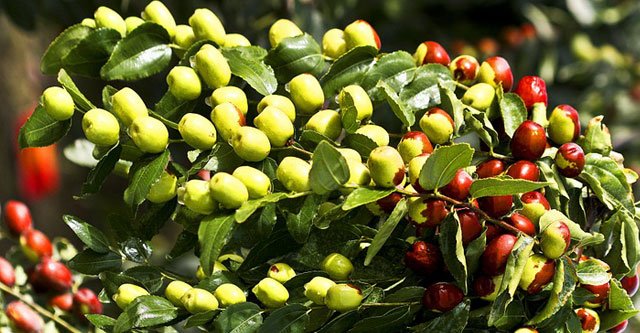



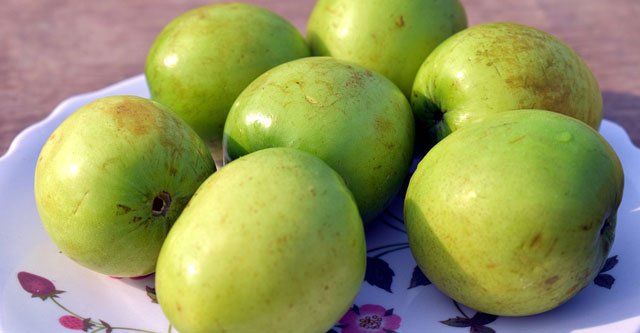
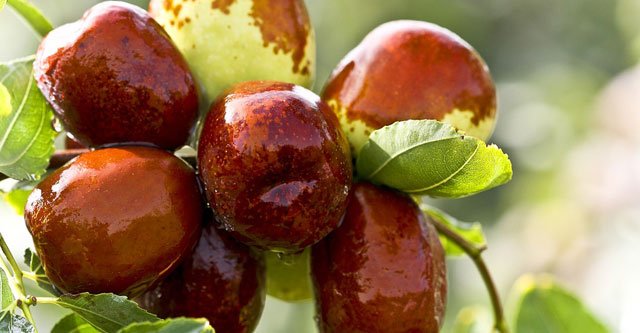

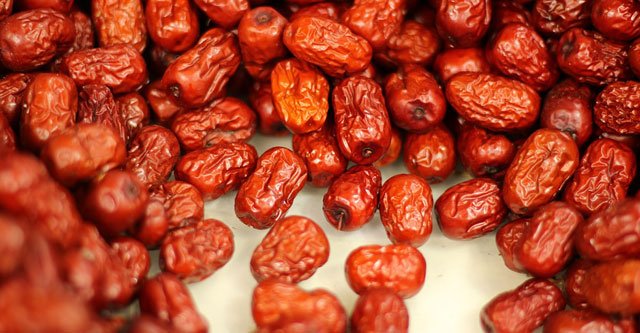
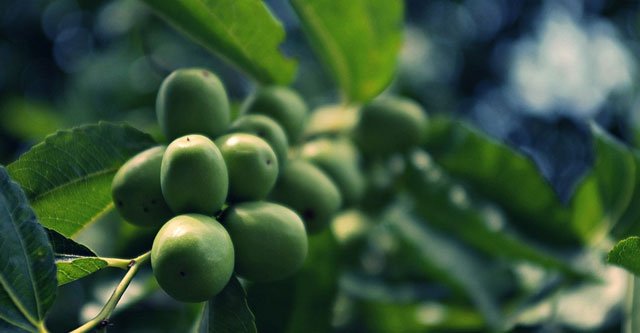


thanks
You are welcome